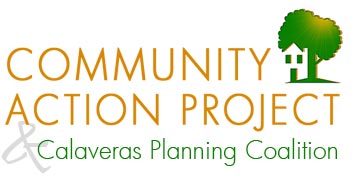CAP is a community-based citizen participation
project focused on sustainable land use planning.
Find out more about us >>
project focused on sustainable land use planning.
Find out more about us >>
Faster Internet online in foothills
Calaveras and Tuolumne counties rank among the lowest of all California counties in regard to having access to high-speed broadband Internet. However, progress is being made to bring the technology to the Central Sierra.
That was the message delivered Tuesday during a presentation at the final Calaveras County Board of Supervisors meeting of the year.
Darrell Slocum, spokesman for Central Sierra Connect, gave supervisors an update on the group’s effort to “bridge the digital divide” in the foothills.
“The Internet can be an avenue to economic prosperity,” he said. “It’s gone from being a luxury to what we consider an absolute necessity.”
Central Sierra Connect, a grant-funded program administered through the Amador-Tuolumne Community Action Agency, is about halfway through a three-year contract that totals $450,000.
The group’s mission is to “support the region’s residents, businesses, visitors and organizations through the promotion, coordination and enhancement of e-technology,” which includes broadband access and technology education.
The program is funded by the California Emerging Technology Fund, established by the California Public Utilities Commission when approving the mergers of SBC and AT&T in addition to MCI and Verizon.
Central Sierra Connect represents Tuolumne and Calaveras counties, along with Mariposa, Amador and western Alpine counties.
Slocum said the foothills will benefit from the Central Valley Next-Generation Broadband Infrastructure Project, a $46.6 million project funded by the American Recovery and Reinvestment Act. The project is designed to improve the broadband networking infrastructure for 18 California counties, including Tuolumne and Calaveras counties.
The main component of the project is installing fiber-optic cable throughout the region.
“It will provide a fiber infrastructure that will be beneficial to our region,” Slocum said.
The project will bring broadband, the type of Internet required to stream video, to key hubs in Tuolumne and Calaveras counties.
In Calaveras, those locations are the Calaveras County Office of Education in Angels Camp and the County Government Center and county library in San Andreas.
In Tuolumne County, locations include the Tuolumne County Office of Education, county administrative offices and the county library, all of which are in Sonora.
The Central Valley project is expected to be complete early next year, Slocum said.
The next step would be for area Internet service providers to invest in using that infrastructure to bring the technology to area homes and businesses. Providers can apply for grant money if they intend to serve areas that do not currently have broadband access, Slocum said.
Dan Richardson, the inside plant manager with Calaveras Telephone Co., said the company started using the Central Valley network in late November to provide video and Internet access to about 3,500 homes and businesses in Copperopolis and Jenny Lind.
“We’ll be able to improve services by using the network,” said Richardson, who did not attend Tuesday’s meeting.
Slocum said as broadband access starts to fill out in urban areas, he’s noticed attention turning to more remote places such as the foothills.
“We’re closer to the point where the rural issue has to be addressed,” he said.
At Tuesday’s meeting, Calaveras County supervisors discussed specific areas where residents in their districts don’t have adequate Internet access. Some supervisors discussed forming a committee to more closely examine Internet-related issues.
Central Sierra Connect is planning a Regional Broadband Summit to be held April 24 at the Sonora Elks Lodge. The public is encouraged to attend.

